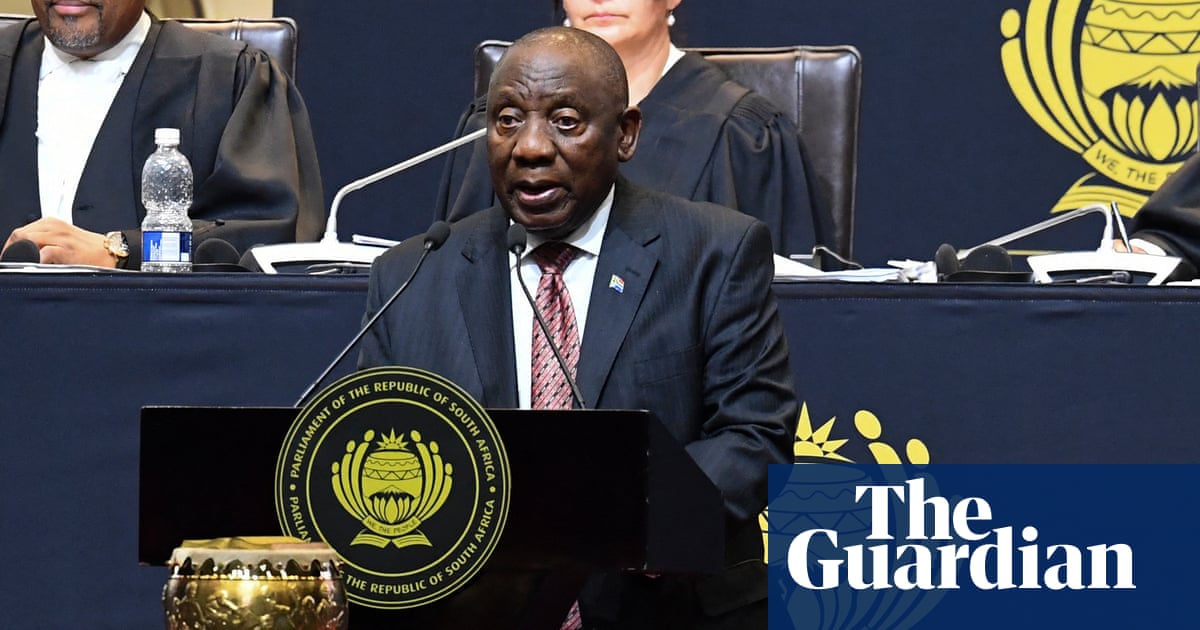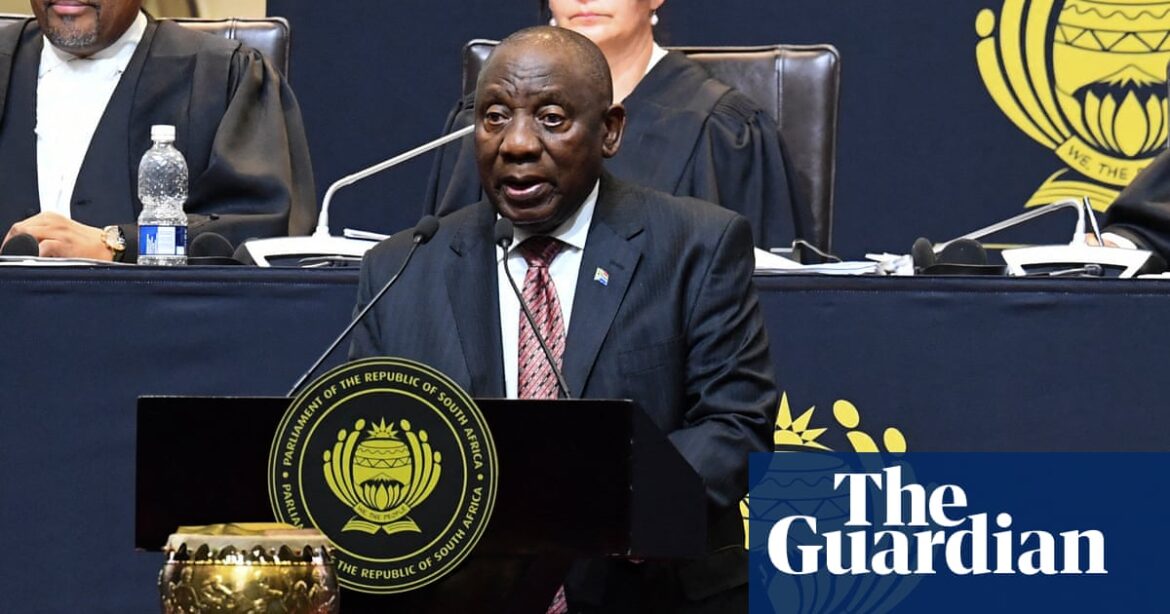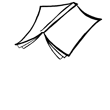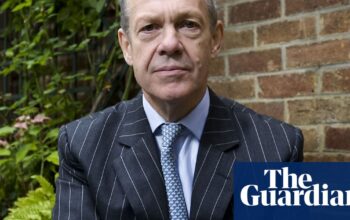
South Africa’s president Cyril Ramaphosa has been reelected by lawmakers for a second term, hours after his African National Congress and the Democratic Alliance (DA) agreed to form a coalition, setting aside their rivalry in a historic governance pact.
Ramaphosa won the late Friday vote against Julius Malema, leader of the far-left Economic Freedom Fighters, winning 283 votes to Malema’s 44.
Earlier in the day the pro-business DA said it would vote for Ramaphosa as part of an agreement with the former liberation movement to form a unity government.
Ramaphosa’s centrist preferences ultimately won out over more leftwing factions of the ANC which wanted to strike a deal with breakaway parties that back nationalisation and seizing land from white farmers. The deal was struck amid criticisms that the DA favours the interests of South Africa’s white minority, something it denies.
The ANC lost its parliamentary majority in the 29 May elections for the first time since it swept to power in 1994 at the end of apartheid. Its vote share collapsed from 57.5% in 2019 to 40.2%, as supporters defected to breakaway parties amid chronic unemployment and worsening public services.
The DA, which received almost 22% of the vote, will back Ramaphosa’s election by lawmakers for a second term, while its MPs will also vote for an ANC speaker of parliament in return for the position of deputy speaker, its leader, John Steenhuisen, told a press briefing.
“Today, the DA becomes a party of national government,” Steenhuisen said, after the legislators were sworn in at a convention centre in Cape Town, while the parliament buildings are still being renovated after a fire in 2022.
“Through their votes, the people have made it clear that they do not want any one party to dominate our society. The people have also told us that the time for finger-pointing is over and that the time for a new politics of collaboration and problem-solving has arrived.”
An ANC-DA coalition was favoured by large businesses and international investors, with Ramaphosa, 71, expected to continue to try pushing forward policies such as allowing the private sector to generate renewable energy, which has contributed to a fall in power cuts.
Negotiations will continue after Friday on policies and cabinet positions, Steenhuisen said, adding that the two-week period after election results that the constitution mandates for the election of a president was not long enough to reach a full coalition agreement.
A “statement of intent” signed by the ANC and DA includes a commitment to a “merit-based, nonpartisan and professional civil service”. The DA has long criticised the ANC appointment of its supporters to public sector positions, known in South Africa as “cadre deployment”, claiming it fosters corruption.
Two smaller parties, the Inkatha Freedom party (IFP), a Zulu nationalist party, and the Patriotic Alliance (PA), which wants to bring back the death penalty and deport illegal immigrants, have also said they will join the government.
The inclusion of the IFP, which received 3.8% of the vote, is viewed as a way to deflect criticism of the ANC for working with the white-led DA. The PA, led by the self-described reformed bank robber Gayton McKenzie, received 2% of the vote and has its support base in South Africa’s Coloured communities.
The ANC’s vote share collapsed in large part due to the new uMkhonto weSizwe (MK) party, named for the ANC’s armed wing during apartheid. It came a surprise third in the election with 14.6% of the vote, just six months after it was launched by the former president Jacob Zuma, who has feuded bitterly with Ramaphosa since being forced to resign the presidency in 2018.
The MK party, which wants to replace constitutional democracy with parliamentary supremacy, boycotted parliament’s opening, after a legal challenge to the election results was rejected by the country’s top court. It has said it would not work with the ANC while it is led by Ramaphosa, who said that potential coalition partners needed to respect the constitution.
Meanwhile, the far-left Economic Freedom Fighters (EFF), who were sworn in as MPs in their trademark red overalls, some wearing hard hats and rubber boots, were among the parties that turned down Ramaphosa’s call to join a Government of National Unity (GNU).
Malema, the EFF leader, who founded the Marxist party in 2013 after he was expelled by the ANC while its youth leader, said it would not join a government with the “neo-colonial” DA, which he labelled “our enemy”.
Some ANC politicians and supporters had favoured a coalition with either or both the EFF and MK, viewing them as political and ideological relatives.
Ramaphosa’s call for a GNU, however, was in keeping with his cautious political approach, some analysts said, and positioned the ANC as inclusive, with parties that didn’t join excluding themselves.
Source: theguardian.com



